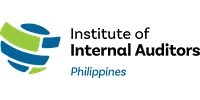Event Details
What you will learn
Quality Standards and Recommended Guidance
- Interpret both mandatory and recommended guidance in the IPPF regarding establishing a quality assurance and improvement program (QAIP).
- Discuss key concepts of Standard 1300.
- Clarify key elements of the Practice Guide "Quality Assurance and Improvement Program."
Quality Assurance Process Model
- Explain the quality assessment process model and use its related tools as described in the Quality Assessment Manual published by The IIA to identify areas of focus for a quality assurance and improvement program (QAIP).
- Clarify the purpose of the quality assessment process model's four segments: Internal Audit Governance, Internal Audit Staff, Internal Audit Management, and Internal Audit Process
- Contrast the purpose and use of the quality assessment process tools — planning guides, surveys, interview guides, and programs.
- Identify any possible areas of focus for a quality assurance and improvement program QAIP.
- Highlight key areas of focus for a QAIP, based on survey responses.
Developing Metrics and Reporting for the QAIP
- Develop metrics and design reports of results of your internal audit QAIP.
- Interpret key concepts from practice guide "Measuring Internal Audit Efficiency and Effectiveness"
- Identify metrics to measure performance of the QAIP. • Clarify reporting requirements for QAIP contained in the IPPF
- Design reporting options to communicate results of the QAIP.
Who shall attend
Internal auditors with basic IA knowledge but those who have little experience on QA; those practitioners that are yet to establish their IA organization and want to conform with the IPPF standards.




